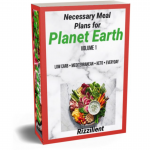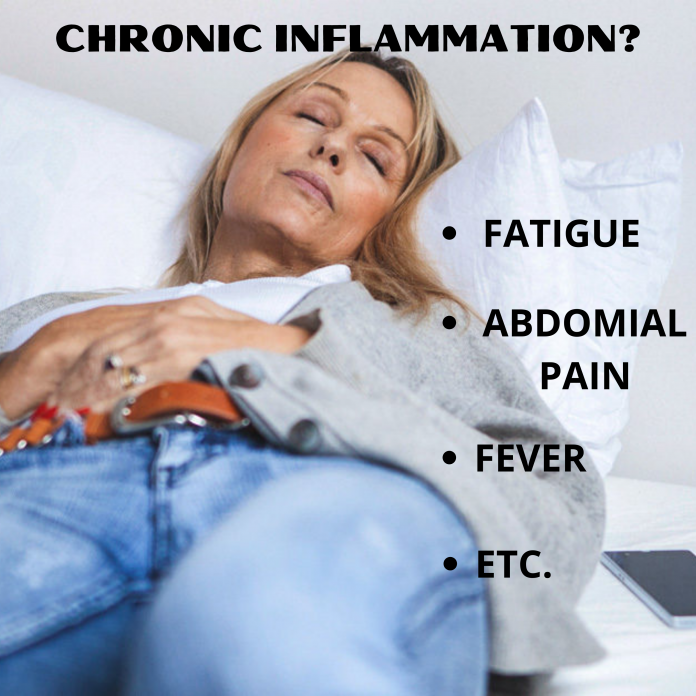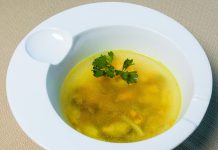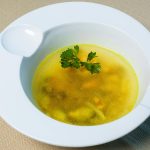Understanding and Managing Chronic Inflammation

What is inflammation?
Inflammation refers to your body’s process of fighting against things that harm it, such as infections, injuries, and toxins, in an attempt to heal itself. When something damages your cells, your body releases chemicals that trigger a response from your immune system.
This response includes the release of antibodies and proteins, as well as increased blood flow to the damaged area. The whole process usually lasts for a few hours or days in the case of acute inflammation.
Chronic inflammation happens when this response lingers, leaving your body in a constant state of alert. Over time, chronic inflammation may have a negative impact on your tissues and organs. Some researchTrusted Source suggests that chronic inflammation could also play a role in a range of conditions, from cancer to asthma.
Read on to learn more about chronic inflammation, including common causes and foods that fight it.
Acute inflammation often causes noticeable symptoms, such as pain, redness, or swelling. But chronic inflammation symptoms are usually subtler. This makes them easy to overlook.
Common symptoms of chronic inflammation include:
- fatigue
- fever
- mouth sores
- rashes
- abdominal pain
- chest pain

These symptoms can range from mild to severe and last for several months or years.
Several things can cause chronic inflammation, including:
- untreated causes of acute inflammation, such as an infection or injury
- an autoimmune disorder, which involves your immune system mistakenly attacking healthy tissue
- long-term exposure to irritants, such as industrial chemicals or polluted air
Keep in mind that these don’t cause chronic inflammation in everyone. In addition, some cases of chronic inflammation don’t have a clear underlying cause.
Experts also believe that a range of factors may also contribute to chronic inflammation, such as:
When you have chronic inflammation, your body’s inflammatory response can eventually start damaging healthy cells, tissues, and organs. Over time, this can lead to DNA damage, tissue death, and internal scarring.
All of these are linked to the development of several diseases, including:
- cancer
- heart disease
- rheumatoid arthritis
- type 2 diabetes
- obesity
- asthma
- neurodegenerative diseases, such as Alzheimer’s disease
Inflammation is a natural part of the healing process. But when it becomes chronic, it’s important to get it under control to reduce your risk of long-term damage. Some of the options that have been explored for managing inflammation include:
- Nonsteroidal anti-inflammatory drugs (NSAIDs). Over-the-counter NSAIDs, such as aspirin, ibuprofen (Advil), and naproxen (Aleve), effectively reduce inflammation and pain. But long-term use is linkedTrusted Source to an increased risk of several conditions, including peptic ulcer disease and kidney disease.
- Steroids. Corticosteroids are a type of steroid hormone. They decrease inflammation and suppress the immune system, which is helpful when it starts attacking healthy tissue. But long-term use of corticosteroids can lead to vision problems, high blood pressure, and osteoporosis. When prescribing corticosteroids, your doctor will weigh the benefits and risks with you.
- Supplements. Certain supplements may help to reduce inflammation. Fish oilTrusted Source, lipoic acidTrusted Source, and curcuminTrusted Source are all linked to decreases inflammation associated with diseases, including cancer and heart disease. Several spices may also help with chronic inflammation and inflammatory disease, including ginger, garlic, and cayenne.
What you eat can play both a positive and negative role in managing chronic inflammation.
Foods to eat
A variety of foods have anti-inflammatory properties. These include foods that are high in antioxidants and polyphenols, such as:
- olive oil
- leafy greens, such as kale and spinach
- tomatoes
- fatty fish, such as salmon, sardines, and mackerel
- nuts
- fruits, especially cherries, blueberries, and oranges
If you’re looking to rethink your eating habits, consider trying the Mediterranean diet. A 2018 studyTrusted Source found that participants following this diet had lower markers of inflammation. This adds to the health benefits found in other studies surrounding the Mediterranean diet.
Interested in trying it out? Check out our beginner’s guide to the Mediterranean diet.
Foods to avoid
The following foods can increase inflammation in some people:
- refined carbohydrates, such as white bread and pastries
- fried foods, such as French fries
- red meat
- processed meat, such as hot dogs and sausage
If you’re trying to reduce/fight inflammation, try to reduce your intake of these foods. You don’t have to completely eliminate them, but try to eat them only occasionally.
Chronic inflammation increases your risk of several serious diseases. Your doctor can diagnose inflammation using blood tests. Medication, supplements, and eating an anti-inflammation diet can help you reduce your risk of inflammation. Avoiding smoking and alcohol, and maintaining a healthy body weight can also help lower your risk, along with reducing your stress levels.
Last medically reviewed on July 27, 2018
( 18 sources)
- Calder PC. (2012). Omega‐3 polyunsaturated fatty acids and inflammatory processes: Nutrition or pharmacology? DOI:
doi.org/10.1111/j.1365-2125.2012.04374.x - Casas R, et al. (2017). Anti-inflammatory effects of the Mediterranean diet in the early and late stages of atheroma plaque development. DOI:
doi.org/10.1155/2017/3674390 - Chronic inflammation. (2015).
cancer.gov/about-cancer/causes-prevention/risk/chronic-inflammation - Ellulu MS, et al. (2016). Obesity and inflammation: The linking mechanism and the complications. DOI:
doi.org/10.5114/aoms.2016.58928 - Foods that fight inflammation. (2017).
health.harvard.edu/staying-healthy/foods-that-fight-inflammation - Kiecolt-Glaser JK. (2010). Stress, food, and inflammation: Psychoneuroimmunology and nutrition at the cutting edge. DOI:
doi.org/10.1097/PSY.0b013e3181dbf489 - Kunnumakkara AB, et al. (2018). Chronic diseases, inflammation, and spices: How are they linked? DOI:
doi.org/10.1186/s12967-018-1381-2 - Lee J, et al. (2012). Cigarette smoking and inflammation: Cellular and molecular mechanisms. DOI:
doi.org/10.1177/0022034511421200 - Liu Y-Z, et al. (2017). Inflammation: The common pathway of stress-related diseases. DOI:
dx.doi.org/10.3389%2Ffnhum.2017.00316 - Maroon JC, et al. (2006). Omega-3 fatty acids (fish oil) as an anti-inflammatory: An alternative to nonsteroidal anti-inflammatory drugs for discogenic pain. DOI:
doi.org/10.1016/j.surneu.2005.10.023 - Minihane AM, et al. (2015). Low-grade inflammation, diet composition and health: Current research evidence and its translation. DOI:
doi.org/10.1017/S0007114515002093 - Moura FA, et al. (2015). Lipoic acid: Its antioxidant and anti-inflammatory role and clinical applications. DOI:
doi.org/10.2174/1568026615666150114161358 - Nasef NA, et al. (2017). Susceptibility to chronic inflammation: An update.
doi.org/10.1007/s00204-016-1914-5 - Panahi Y, et al. (2014). Adjuvant therapy with bioavailability‐boosted curcuminoids suppresses systemic inflammation and improves quality of life in patients with solid tumors. DOI:
doi.org/10.1002/ptr.5149 - Panahi Y, et al. (2015). Antioxidant and anti-inflammatory effects of curcuminoid-piperine combination in subjects with metabolic syndrome: A randomized controlled trial and an updated meta-analysis. DOI:
doi.org/10.1016/j.clnu.2014.12.019 - Strand V, et al. (2017). Immunogenicity of biologics in chronic inflammatory diseases: A systematic review. DOI:
doi.org/10.1007/s40259-017-0231-8 - Understanding inflammation. (n.d.).
health.harvard.edu/staying-healthy/understanding-inflammation - Wang HJ, et al. (2010). Alcohol, inflammation, and gut-liver-brain interactions in tissue damage and disease development. DOI:
doi.org/10.3748/wjg.v16.i11.1304










Keep this going please, great job!
Hey There. I discovered your blog the use of msn. That is a very smartly written article.
I’ll make sure to bookmark it and return to read more of your useful information. Thanks
for the post. I will certainly return.
Every weekend i used to pay a visit this web page, because i wish for enjoyment, as this this
site conations actually good funny stuff too.
Comments are closed.